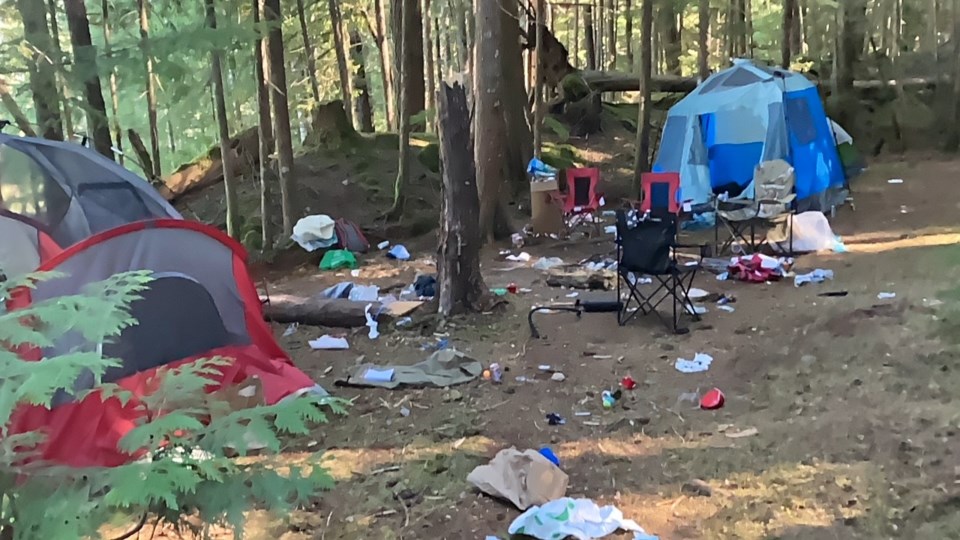When Joanne Calverly went out to do her routine walk in the Cat Lake area, she was greeted by a rather unpleasant sight.
Exposed campfire ashes, garbage, human waste and attractants were strewn about everywhere on the Cheshire Cat Trail off Cat Lake."It's obvious they light fires there," said Calverly. "So there's a risk of fires. Certainly a threat to wildlife with all the garbage. And not to mention the egregious human excrement everywhere."
She didn't mince her words."It was just disgusting," Calverly said of what she saw on April 18.The garbage she saw was during the last weekend of good weather, just before the latest COVID-19 travel restrictions were implemented throughout the province on Friday.
People were camping on the Crown land adjacent to the Cat Lake campground. Calverly suspects that with things being so busy, campers who couldn't find a site at the lake ventured further away from the lake and set up on Crown land.While camping on Crown land for 14 days at a time is legal, she said there needs to be some reasonable limit as to what people can do on the land.
For example, there were no fire pits dug out for the campfires, while there was garbage and excrement everywhere.She called for more monitoring and enforcement of the area, though she acknowledged the challenge it posed.
"The solution would be to try and at least monitor there," said Calverly. "It's hard to know in this day and age because you don't know how people are going to react...so to have one person confront these groups might be dangerous."The Chief asked the Ministry of Environment for comment, and the province directed the request to the local Conservation service.
Sgt. Simon Gravel of the Conservation Officer Service said the best thing for locals to do when they see such things is call the at 1-877-952-7277 (RAPP).Gravel said that while it's legal to camp on Crown land for 14 days, that doesn't give campers licence to do anything.
It's an offence to attract dangerous wildlife and to litter, he said."You need to have minimal impact on Crown land," said Gravel. "You're not allowed to build your own site, destroy vegetation or attract dangerous wildlife." But there are limitations. The Sea to Sky is incredibly busy, making it hard for Conservation to respond to every call."But when we encounter it and see it, we definitely take action," Gravel said.
It's a problem everywhere in the Sea to Sky, not just in the Cat Lake area Calverly identified. Keeping up with the demand is a huge challenge, he said."Right now, I'm the only officer in Squamish," Gravel said.




